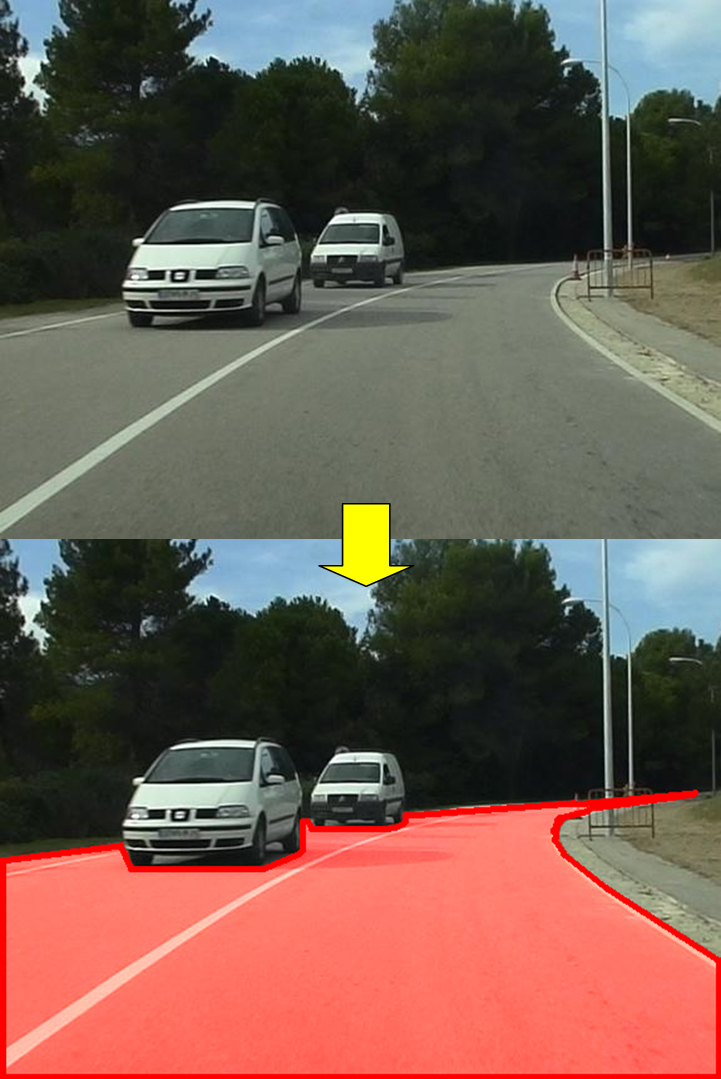Abstract
In this chapter, as a novelty, we propose a road detection approach based on video alignment. Video alignment algorithms aim to relate frames and image coordinates between two video sequence. Hence, the key idea of the proposed algorithm is to exploit similarities occurred when one vehicle drives through the same route (i.e., similar trajectories) more than once. In this way, road knowledge is learnt in a first ride and then, video alignment is used to detect the road in the current image by transferring this knowledge from one sequence to the current one. The result is a rough segmentation of the road that is refined to obtain the accuracy required. The novelty of the method is twofold: first, we propose an on--line method to perform video alignment based on image comparisons and a fixed--lag smoothing approach. This method is specially designed to deal with specific road detection requirements: independent camera trajectories and independent vehicle speed variations. Second, a road detection algorithm is proposed on the basis of on--line video alignment. The algorithm improve the robustness of video--alignment to shadows by computing image comparisons in an illuminant--invariant feature space. Then, this robustness is combined with a refinement step at pixel--level to achieve the required accuracy. |
|
Sequences
Experiments are conducted on different video sequence pairs to validate the robustness of proposed algorithm for detecting the road despite varying lighting conditions (i.e., shadows and different daytime) and the presence of other vehicles in the scene.
| SCENARIO | Sequence | Recording Time | Lighting | Shadows | Vehicles | Length |
| Back-Road-1 | Observed | noon | sunny | yes | yes | 714 |
| Reference | morning | cloudy | no | yes | 948 | |
| Back-Road-2 | Observed | noon | cloudy | wet | yes | 402 |
| Reference | morning | cloudy | no | yes | 948 | |
| Street-1 [1] | Observed | noon | sunny | yes | yes | 210 |
| Reference | noon | cloudy | no | no | 239 | |
| Street-2 [1] | Observed | morning | sunny | shining | no | 260 |
| Reference | morning | cloudy | no | no | 239 | |
| Back-Road-3 | Observed | noon | sunny | yes | yes | 1318 |
| Reference | afternoon | cloudy | no | no | 627 | |
| Street-3 | Observed | noon | sunny | yes | no | 520 |
| Reference | afternoon | cloudy | no | no | 627 | |
| Campus | Observed | sunset | sunny | no | yes | 600 |
| Reference | noon | sunny | yes | no | 816 |
Results
Back-Road-1
| Input: | Observed Sequence |
Reference Seq. +
Segmentation |
| Result: | Road Detection AFTER Refinement |
Road Detection BEFORE Refinement |
Note: The observed sequence contains a strong shadows, and in-coming vehicles; whereas the reference sequences only few vehicles.
Back-Road-2
| Input: | Observed Sequence |
Reference Seq. +
Segmentation |
| Result: | Road Detection AFTER Refinement |
Road Detection BEFORE Refinement |
Note: The observed sequence contains a wet road surface, and in-coming and out-coming vehicles; whereas the reference sequences only few vehicles.
Street-1
| Input: | Observed Sequence |
Reference Seq. +
Segmentation |
| Result: | Road Detection AFTER Refinement |
Road Detection BEFORE Refinement |
Note: The observed sequence contains out-coming vehicles of different colors.
Street-2
| Input: | Observed Sequence |
Reference Seq. +
Segmentation |
| Result: | Road Detection AFTER Refinement |
Road Detection BEFORE Refinement |
Note: The observed sequence has a shining road surface without vehicles.
Back-Road-3
| Input: | Observed Sequence |
Reference Seq. +
Segmentation |
| Result: | Road Detection AFTER Refinement |
Road Detection BEFORE Refinement |
Note: The observed sequence contains less pronunciate shadows and in-coming vehicles.
Street-3
| Input: | Observed Sequence |
Reference Seq. +
Segmentation |
| Result: | Road Detection AFTER Refinement |
Road Detection BEFORE Refinement |
Note: The observed sequence contains less pronunciate shadows without moving vehicles.
Campus
| Input: | Observed Sequence |
Reference Seq. +
Segmentation |
| Result: | Road Detection AFTER Refinement |
Road Detection BEFORE Refinement |
Note: The observed sequence was recorded during the sunset; whereas the reference sequence contains shadows.
Automatic Ground--Truthing
Sequence 1 as a Reference Sequence
| Input: | Observed Sequence |
Reference Seq. +
Segmentation |
| Result: | Road Detection AFTER Refinement |
Road Detection BEFORE Refinement |
Sequence 2 as a Reference Sequence
| Input: | Observed Sequence |
Reference Seq. +
Segmentation |
| Result: | Road Detection AFTER Refinement |
Road Detection BEFORE Refinement |
References
[1] Hui Kong, Jean-Yves Audibert, and Jean Ponce. General road detection from a single image. IEEE Transactions on Image Processing, 9(18):2211 -2220, 2010.



